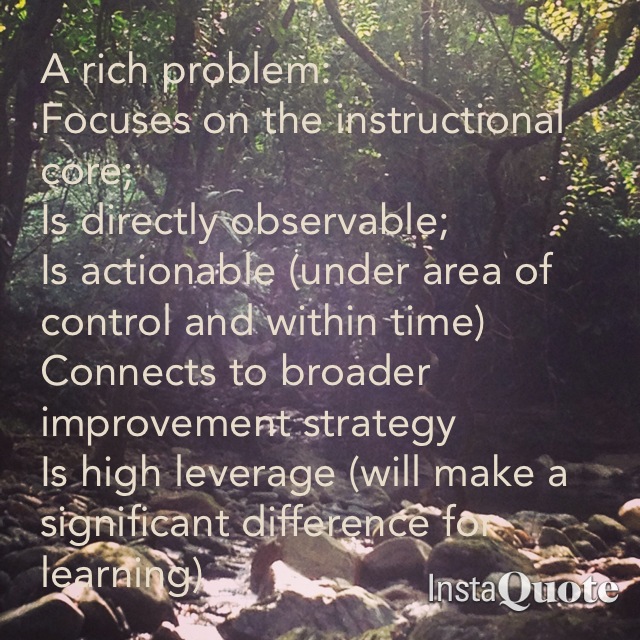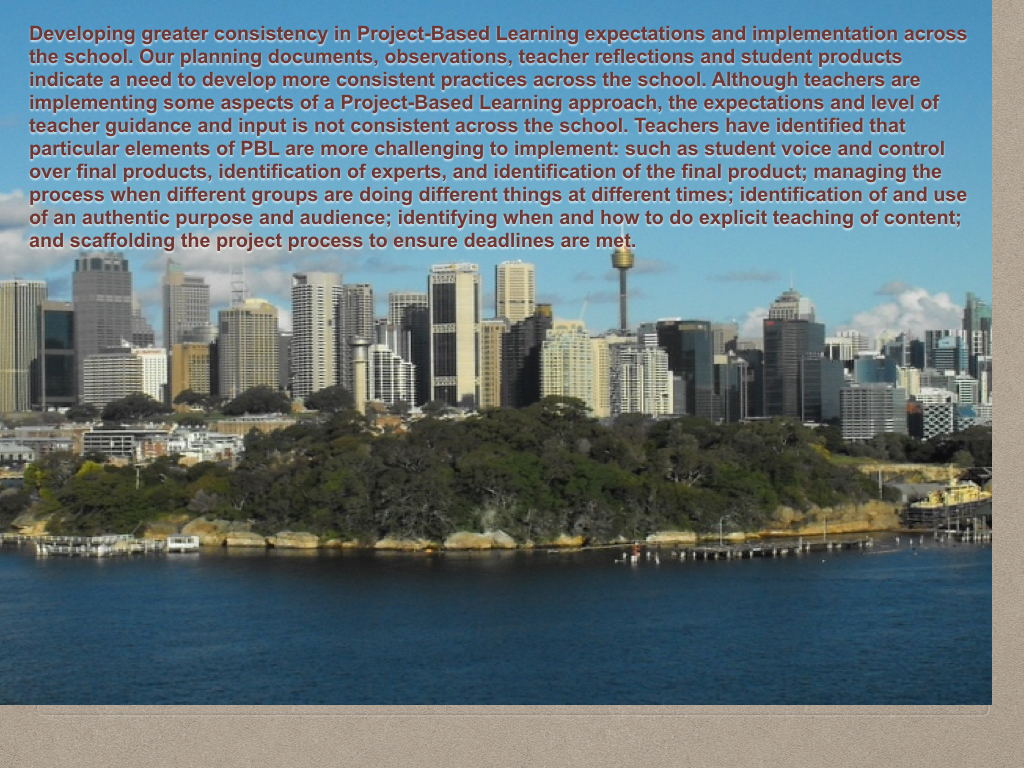A problem of practice is:
"something you care about that would make a difference for student learning if you improved it." (City et al, 2009, p102)
The image below describes the key features of a rich problem of practice. Read the article 'Identifying a Problem of Practice' and identify the key elements of an effective POP.
"something you care about that would make a difference for student learning if you improved it." (City et al, 2009, p102)
The image below describes the key features of a rich problem of practice. Read the article 'Identifying a Problem of Practice' and identify the key elements of an effective POP.
Responses:
Needs to be something we care about that will make a difference for student learning
Comes from somewhere data driven and observable so it is possible to make change and observe the changes easily
Deep learning for students and teachers comes out of the problem of practice
Needs to be realistic and connected to what is actually happening in classrooms and something that can be observed
Focus questions - broken into student, teacher and content related back to the instructional core
Rich POP needs to have the background context as to why this is a problem, what other evidence has been used, needs to be deep enough to have rich action resulting, driven by how teachers are feeling or responding to a particular issue.
Needs to be something we care about that will make a difference for student learning
Comes from somewhere data driven and observable so it is possible to make change and observe the changes easily
Deep learning for students and teachers comes out of the problem of practice
Needs to be realistic and connected to what is actually happening in classrooms and something that can be observed
Focus questions - broken into student, teacher and content related back to the instructional core
Rich POP needs to have the background context as to why this is a problem, what other evidence has been used, needs to be deep enough to have rich action resulting, driven by how teachers are feeling or responding to a particular issue.
Our problem of practice:
Read through it and discuss the main ideas in it. Think of some focus questions that could help guide our Instructional Rounds process, share these with a partner.
Read through it and discuss the main ideas in it. Think of some focus questions that could help guide our Instructional Rounds process, share these with a partner.
Focus questions:
What examples of scaffolding are teachers using to ensure all students meet the deadlines?
What evidence is there of student control/voice/choice over the final product and how are they working to achieve it?
What evidence is there that students have identified an authentic audience and are linking this to their product?
What evidence is there that explicit teaching of content has occurred and that students have accessed experts?
How are teachers managing the process of 'PBL time' and allowing for student voice and choice?
Are high expectations set for student work, engagement and processes throughout PBL? How are these communicated/established in the classroom?
What examples of scaffolding are teachers using to ensure all students meet the deadlines?
What evidence is there of student control/voice/choice over the final product and how are they working to achieve it?
What evidence is there that students have identified an authentic audience and are linking this to their product?
What evidence is there that explicit teaching of content has occurred and that students have accessed experts?
How are teachers managing the process of 'PBL time' and allowing for student voice and choice?
Are high expectations set for student work, engagement and processes throughout PBL? How are these communicated/established in the classroom?


